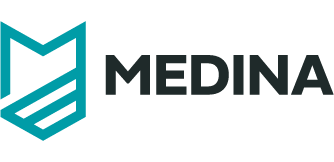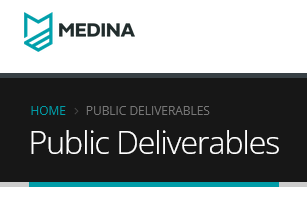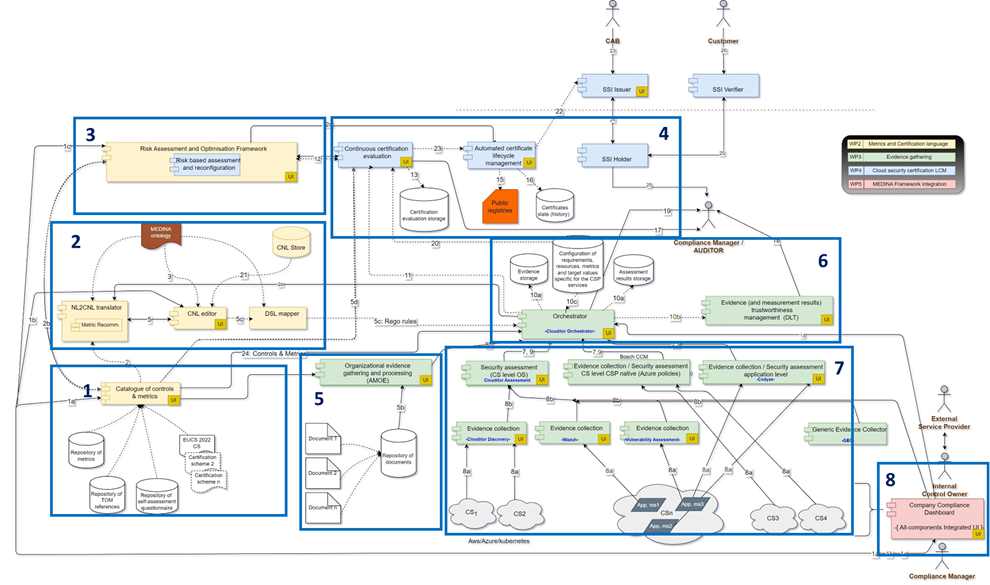One new public deliverable (D5.5 MEDINA Integrated Solution-v3) has been released and published on the MEDINA project website . This deliverable presents the third and final version of the MEDINA integrated solution with increased functionalities compared to the initial prototype in M15 and the second prototype in M27, and also taking into consideration the feedback coming from the evaluation in the two MEDINA Use Cases.
The document starts by describing the details of the hardware infrastructure provided to set up the Test Bed environment and how this environment is implemented and used to host the MEDINA components, Then, the methodology adopted to achieve the integration of the MEDINA components is described. Finally, the current status of the MEDINA framework release and the integration of its component is detailed.
Secondly, the document describes the overall design of the CI/CD solution that has been put in place to support the development and integration activities of the MEDINA framework. This solution foresees three pipelines of build, deploy and security to perform the automation of the integration component.
Thirdly, the document presents the generic workflows used by the Use Cases to test the correct behaviour of the framework. Workflows include the user role point of view that has conducted the implemention of the authorization and filtering strategies in the components.
Fourthly, the document presents an overview of the implementation status of each component, explaining their published APIs for the interaction with the other components, and providing details on the component user interface (if any). In addition, the user manuals of those MEDINA framework components that have a GUI are included in APPENDIX G: User Manuals.
Finally, the document includes the description of the two MEDINA User Interfaces. On the one hand the MEDINA Integrated User Interface (IUI), which is the entry point to access to the MEDINA framework in Use Case 1, led by Bosch. And on the other hand, the Company Compliance Dashboard (CCD), that has been implemented to support Use Case 2, led by Fabasoft, with the purpose of demonstrating how MEDINA achieves a high level of modularity through its components and several core APIs, such that potential customers are able to integrate MEDINA seamlessly into their own ecosystem.



0 Comments